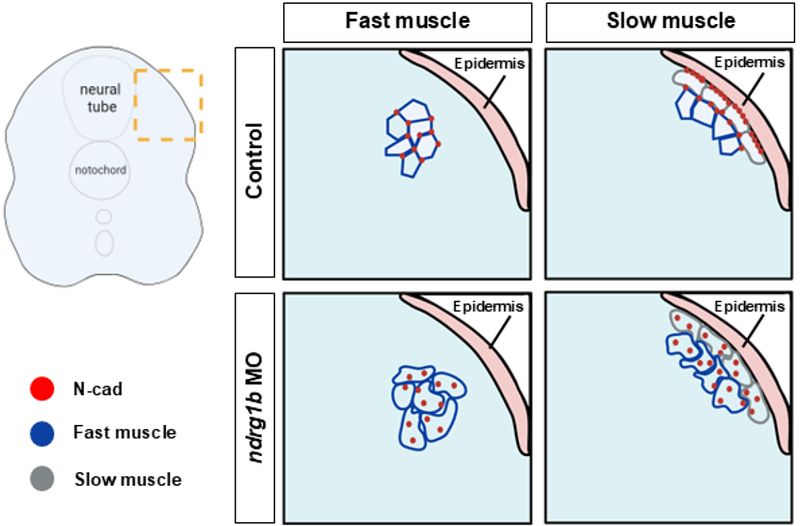N-Myc downstream regulated gene 1b is a regulator of cell adhesion during early muscle development

N-Myc downstream regulated gene 1b is a regulator of cell adhesion during early muscle development
Chowdhary, P. K.; Brewster, R. M.
AbstractThe complexity of cellular functions necessitates intricate pathways that govern protein synthesis, transport, and degradation; yet the mechanisms governing the trafficking of key developmental proteins in vivo remain incompletely understood. N-Myc downstream-regulated genes (NDRGs) have recently emerged as stress-responsive proteins with roles in protein trafficking, but their functions during normal embryogenesis are largely unknown. Here, we identify N-Myc downstream-regulated gene 1b (Ndrg1b) as a novel regulator of N-cadherin (N-cad, cdh2) trafficking during zebrafish muscle development. We show that ndrg1b is broadly expressed during embryonic and larval stages and is required for proper skeletal muscle morphogenesis. Loss of Ndrg1b disrupts N-cad localization and impairs cell adhesion in vitro, highlighting a key role in maintaining tissue integrity. Mechanistically, Ndrg1b promotes the recycling of N-cad to the plasma membrane, identifying it as a novel component of the endocytic trafficking machinery in vivo. Given the central role of N-cad in development and disease, these findings provide new insight into how its localization is fine-tuned during morphogenesis. This work also expands the functional repertoire of NDRGs beyond stress response, suggesting that Ndrg1b - and potentially other NDRG family members - may broadly regulate transmembrane protein trafficking in a context-dependent manner. Furthermore, these findings may shed greater light on the etiology of Charcot-Marie-Tooth Disease type 4D, which has been linked to mutations in NDRG1.